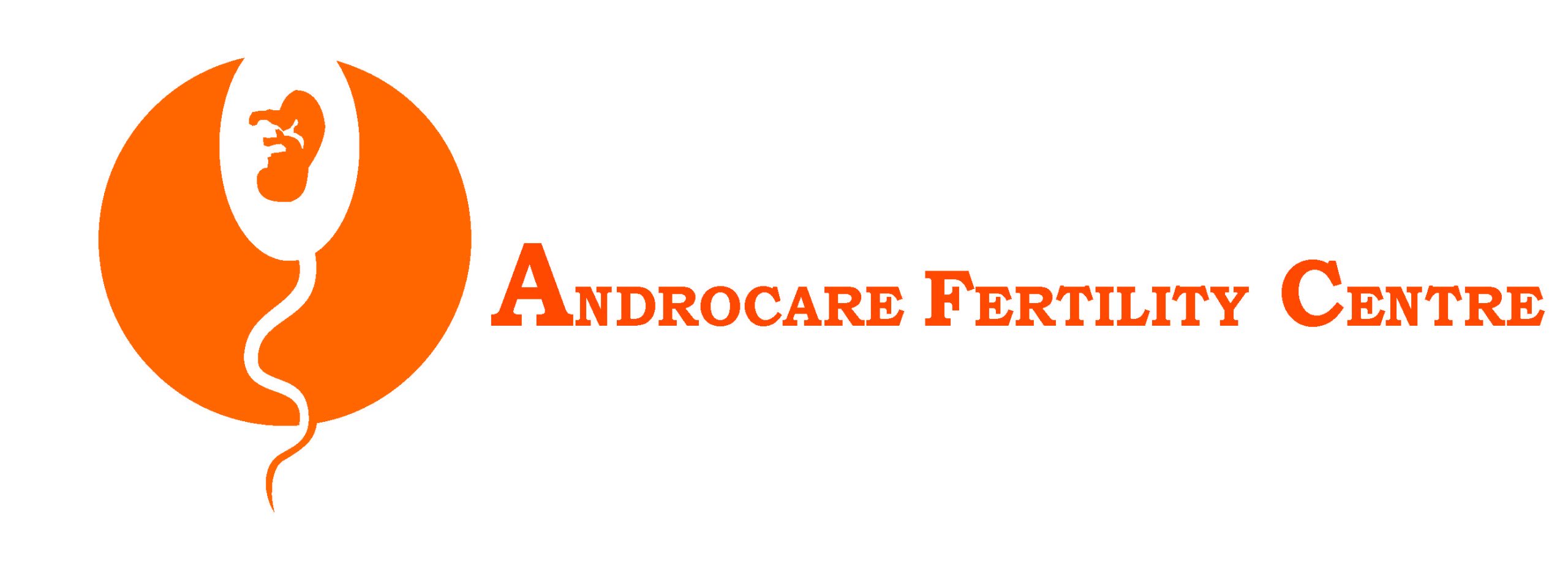How to Increase the Success of IVF at Age 40: Expert Tips and Advice
Introduction
Embarking on the journey of in-vitro fertilization (IVF) can be both exciting and daunting, especially for women in their 40s. As more women choose to start families later in life, the success of IVF at age 40 becomes a critical topic. While IVF has provided hope to many, understanding how to maximize its success is crucial.
At 40 years old, the challenge of getting pregnant is more pronounced due to the natural decline in fertility. Many women aged 40 and above face the dual hurdles of decreased ovarian reserve and lower IVF success rates. The chances of achieving successful IVF outcomes tend to decrease for women aged 40 and above when compared to their younger counterparts. As women reach the age of 40, the success rate of IVF decreases significantly due to a decrease in both the quantity and quality of eggs.
However, it’s important to note that many women have successfully conceived through IVF at this age. With the right strategies and expert guidance, the success rate of IVF can be significantly improved, even for women in their 40s.
This comprehensive guide will delve into expert tips and advice to help increase your chances of a successful pregnancy through IVF at age 40.
Tips for Increasing the Success of IVF at Age 40
As women age, the chances of conceiving naturally decrease significantly. This is why many women turn to In Vitro Fertilization (IVF) as a viable option to fulfill their dreams of becoming mothers. While IVF can be successful at any age, there are certain factors that can increase the chances of success, especially for women who are 40 years old or older.
Optimizing Health and Lifestyle
To enhance the success of IVF at age 40, prioritizing your health and lifestyle is key. Engaging in regular exercise, following a well-balanced diet, and maintaining a healthy weight can create a more conducive environment for fertility treatments.
Research indicates that women within a healthy weight range often experience higher success rates with IVF procedures. Antioxidant-rich foods such as berries and leafy greens can boost egg quality, while omega-3 fatty acids found in fish and flaxseed support reproductive health.
It’s vital to steer clear of harmful substances like tobacco and excessive alcohol, as these can impede fertility and impact the effectiveness of IVF therapies.
Understanding and Improving Egg Quality
As women reach the age of 40, a decline in egg quality poses a significant challenge for those planning to undergo IVF treatment. It is not just the quantity that decreases, but also the quality of eggs, impacting the success rate of IVF procedures. However, promising results have been observed with the use of supplements like CoQ10 and DHEA in improving egg quality for older women.
For instance, a study demonstrated that women who incorporated CoQ10 supplements into their regimen experienced better outcomes during their IVF cycles. These supplements have shown potential in mitigating the effects of aging on egg quality and could enhance the chances of successful fertilization.
Considering these findings, consulting a fertility specialist about incorporating such supplements tailored to individual needs may offer valuable insights into optimizing egg quality and ultimately increasing the success of IVF at age 40.
Considering Donor Eggs
For women aged 40 and above, using donor eggs can greatly improve the success rates of IVF treatments. Donor eggs are typically sourced from younger and fertile individuals, which can lead to higher chances of pregnancy success. This approach is especially recommended by fertility specialists due to its proven effectiveness in older women.
For example, a study published in the Journal of Assisted Reproduction and Genetics showed that women over 40 had a significantly higher success rate with donor eggs compared to using their own eggs. Additionally, celebrities like Janet Jackson and Halle Berry have openly discussed their use of donor eggs to achieve pregnancy in their forties.
Ultimately, considering donor eggs can be a valuable option for older women seeking successful IVF outcomes. The opportunity to increase the likelihood of getting pregnant through this method should not be overlooked, as it offers a promising path towards fulfilling your dream of motherhood at an advanced maternal age.
Choosing the Right Fertility Clinic
Choosing the right fertility clinic is crucial for maximizing the success of IVF at age 40. Opt for clinics with proven high success rates and expertise in treating older women, as this can greatly impact your chances of a successful pregnancy. For example, clinics specializing in advanced maternal age often deliver better outcomes.
Prioritize researching clinics with strong track records and consider factors like advanced embryo screening and personalized treatment plans to enhance your chances of success. Comprehensive services offered by reputable clinics can provide you with the support and resources needed for a successful IVF journey.
Utilizing Advanced Embryo Screening Techniques
Advanced embryo screening techniques, such as Preimplantation Genetic Testing (PGT), have revolutionized the success of IVF at age 40. By allowing the selection of embryos with the highest potential for a successful pregnancy, PGT reduces the risk of miscarriage and increases the likelihood of a live birth. This technology ensures that only embryos with the correct number of chromosomes are transferred during embryo transfer, which significantly improves live birth rates in older women undergoing IVF.
Consulting with your fertility specialist about incorporating PGT into your treatment plan can provide valuable insights and personalized guidance. The ability to identify genetically healthy embryos through PGT has been instrumental in improving outcomes for women over 40 undergoing IVF.
Understanding these advancements in embryo screening can empower individuals to make informed decisions about their fertility journey. Embracing these cutting-edge technologies can optimize the chances of a successful pregnancy while mitigating potential risks associated with advanced maternal age during IVF treatment.

Improving Uterine Receptivity
Ensuring a receptive uterine lining is essential for successful embryo implantation, especially in individuals undergoing IVF at age 40. Techniques like endometrial scratching have proven to be effective in improving uterine receptivity and increasing the chances of successful IVF outcomes for women in this age group.
Consulting with your healthcare provider about potential medications or supplements that can optimize uterine health is also beneficial. Certain prescribed medications may help create an optimal environment for embryo implantation by addressing any underlying issues affecting uterine receptivity.
By combining techniques such as endometrial scratching with healthy lifestyle choices and medical interventions as recommended by your doctor, you can significantly improve your chances of achieving success of IVF at age 40 . Remember that proactive steps to enhance uterine receptivity can make a meaningful difference in your fertility journey.
Managing Stress and Mental Health
Managing stress is crucial for success during fertility treatment, especially for women undergoing IVF at age 40. Studies have linked high stress levels to lower IVF success rates, highlighting the importance of incorporating stress-reducing practices. Yoga, meditation, acupuncture, and other relaxation techniques have been shown to improve outcomes by reducing stress and promoting overall well-being.
For example, a study found that women who practiced yoga during IVF had higher success rates compared to those who did not. Additionally, joining support groups or seeking counseling can provide emotional support and enhance mental health throughout the challenging fertility journey.
By prioritizing stress management and mental health, individuals can increase their chances of successful IVF outcomes even at an older age.
Personalizing the IVF Protocol
A personalized IVF protocol designed specifically for your needs can greatly improve the success of IVF at age 40 . This involves fine-tuning medication dosages, selecting the most suitable timing for embryo transfer, and utilizing advanced techniques tailored to your medical background and treatment response.
For instance, a natural cycle IVF could be advantageous for some individuals, while others might require a more aggressive approach depending on their circumstances. Collaborating closely with your fertility specialist to create a customized treatment plan is crucial to maximize your chances of success.
By incorporating these personalized strategies into your IVF journey, you are increasing the likelihood of achieving a successful outcome and fulfilling your dream of starting a family at 40.
Incorporating Acupuncture and Alternative Therapies
Incorporating acupuncture and alternative therapies can significantly enhance the success of IVF treatments, especially for women aged 40 and above. Acupuncture has been proven to boost blood flow to key reproductive organs like the uterus and ovaries, increasing the chances of successful IVF outcomes.
In particular, receiving acupuncture around the time of embryo transfer can promote implantation and improve overall fertility rates. Studies have shown that combining acupuncture with IVF procedures often results in higher success rates for women undergoing fertility treatments.
Additionally, alternative therapies like herbal supplements and mind-body programs offer natural ways to support reproductive health and increase the likelihood of successful pregnancy. By integrating these complementary approaches into your treatment plan, you can optimize your chances of achieving a successful IVF outcome at an advanced maternal age.
Understanding the Importance of Timing
In IVF treatments for individuals at age 40, the importance of timing cannot be overstated. Properly managing the timing of medication administration is vital in optimizing the chances of success. For example, ensuring that fertility medications are taken at specific times each day can impact egg maturation and production.
Additionally, precise timing of procedures such as egg retrieval is essential. This critical step must be carefully scheduled to harvest optimal quality eggs for fertilization. Timing also plays a crucial role during embryo transfer, where the window of opportunity for successful implantation is narrow at age 40.
By closely monitoring these timings, your fertility clinic can maximize the likelihood of a successful IVF outcome. Regular monitoring allows for adjustments to be made if needed, ensuring that every step in the process aligns with your body’s unique needs and requirements at age 40.
Ultimately, understanding and strictly adhering to the correct timing protocols set forth by your medical team can significantly increase the chances of success of IVF at age 40
For women facing challenges of success of IVF at age 40 , considering frozen embryo transfers (FET) can significantly increase the chances of success. By freezing embryos, the body is given time to recover from the stimulation process, resulting in a more conducive environment for implantation.
Research has shown that FET can often lead to higher live birth rates when compared to fresh transfers. For example, a study by the American Society for Reproductive Medicine found that women over 40 using FET had a 35% higher chance of achieving a live birth than those using fresh transfers.
Consulting with your fertility specialist about the benefits of FET could help tailor your treatment plan for optimal results. Ultimately, exploring this option could be the key to fulfilling your dream of starting a family at age 40 and beyond.
Evaluating Sperm Quality
While egg quality receives much attention during success of IVF at age 40, the quality of sperm is just as crucial. Healthy and motile sperm from the male partner can significantly enhance fertilization rates and overall embryo quality. Lifestyle modifications like quitting smoking, reducing alcohol consumption, and incorporating specific supplements can positively impact sperm quality.
For instance, antioxidants such as vitamin C and E are known to improve sperm motility. Additionally, a comprehensive sperm analysis can identify any underlying issues that may be affecting fertility potential. By prioritizing sperm quality through these methods, couples undergoing IVF at age 40 can increase their chances of successful conception.
Seeking Second Opinions
If you have experienced unsuccessful IVF attempts at age 40, seeking a second opinion is crucial. By consulting with multiple clinics and specialists, you can gain valuable insights into alternative strategies that may increase the chances of success.
For example, one clinic might suggest using a different protocol for ovarian stimulation to improve egg quality, while another specialist may recommend additional testing or personalized treatment plans. Exploring different approaches can help you make well-informed decisions about your next steps in the IVF journey.
Additionally, seeking a second opinion may reveal novel techniques such as preimplantation genetic testing or embryo monitoring that could enhance the success rate of IVF at age 40. Ultimately, by being proactive and open to new possibilities, you can optimize your chances of achieving a successful pregnancy through IVF.
Staying Informed and Educated
It is crucial to stay informed and educated about the latest advancements in fertility treatments, especially for individuals considering success of IVF at age 40. By regularly reading reputable sources and attending fertility seminars, you can stay up-to-date on the most effective methods available.
Discussing new techniques with your specialist can help you make well-informed decisions tailored to your unique situation. For instance, understanding the benefits of time-lapse embryo imaging technology can offer additional options for enhancing IVF success rates.
This innovative technology allows constant monitoring of embryo development, potentially improving the chances of a successful pregnancy. Stay proactive in learning about such advancements to maximize your chances of a successful IVF journey at age 40.
Conclusion
Achieving a successful pregnancy through IVF at age 40 may pose challenges, but with strategic approaches and expert guidance, it is feasible. By focusing on optimizing your health, exploring advanced techniques, and tailoring your treatment plan, you can enhance the likelihood of success.
At Androcare Fertility, we specialize in assisting women over 40 in realizing their dreams of motherhood. Our dedicated team offers personalized care and utilizes cutting-edge fertility treatments to bolster your chances of a successful pregnancy.
For instance, considering preimplantation genetic testing can increase the chances of selecting the healthiest embryos for transfer. Additionally, incorporating lifestyle changes such as maintaining a healthy diet and regular exercise routine can positively impact the outcome of IVF at age 40. Moreover, discussing with our experts about using donor eggs or sperm can open up new possibilities for achieving a successful pregnancy beyond traditional methods.
Embarking on the journey towards success of IVF at age 40 may have its hurdles, but with our support and innovative strategies, you can move closer to making your dream of having a family a reality. Contact us today to begin this transformative journey towards parenthood.

